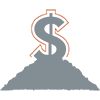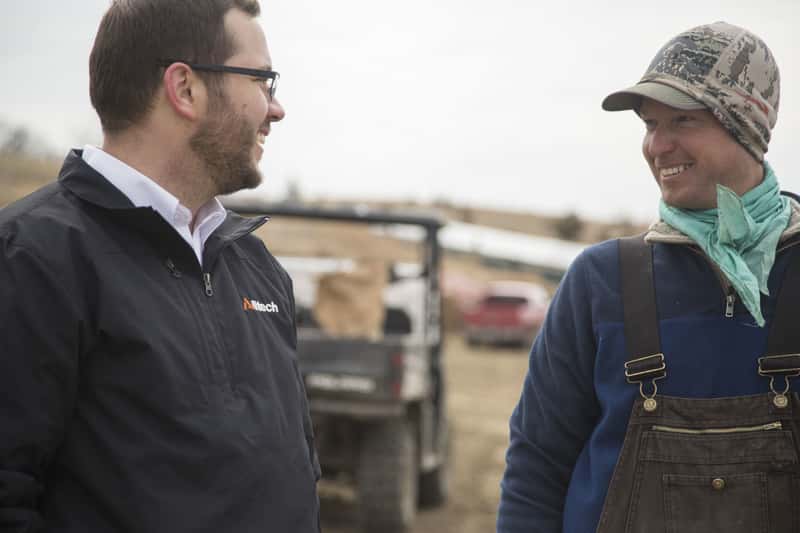
North America

Europe

Latin America

Asia Pacific

Africa

Middle East

North America

Europe

Latin America

Asia Pacific

Africa

Middle East
Como parte dos esforços da Alltech para disponibilizar informações relevantes sobre o combate da Covid-19 para colaboradores, clientes e a comunidade agro mundial, a companhia lança uma websérie especial - “Construindo o futuro da agropecuária e da cadeia de produção alimentar”. Disponível de forma online, a websérie com acesso gratuito conta com a participação de especialistas de todo o mundo, que compartilham suas opiniões sobre como a pandemia está afetando o presente e o futuro do agronegócio.
“Crises como a da Covid-19 destacaram o trabalho heroico desempenhado pela comunidade agrícola global para garantir a segurança e estoques da cadeia de produção de alimentos em meio à tamanha incerteza”, afirmou o presidente e CEO da Alltech, Mark Lyons. “Criamos essa série como forma de expressar nosso apoio a esta comunidade. Além de oferecer informações valiosas diante do desafio da Covid-19, nós esperamos trazer inspiração – neste momento, temos a oportunidade de, juntos, dar forma ao futuro do agronegócio e da cadeia de produção de alimentos”, complementa.
A série é composta por apresentações do presidente da Alltech, além de três painéis de debate com especialistas – entre eles, David McWillliams, economista e professor da Trinity College Dublin (Irlanda); Jessica Adelman, CEO da ESG Results e ex-executiva da Kroger Company; Jack Bobo, CEO da Futurity; e Ryan Quarles, Comissário de Agricultura do estado do Kentucky (EUA).
A websérie “Construindo o futuro do agronegócio e da cadeia de produção de alimentos” inclui os seguintes debates:
Cultivando otimismo e oportunidades: liderança em tempos de crise
Em tempos de crise, a liderança se torna ainda mais impactante. Como os líderes podem trazer segurança em tempos de incerteza? Como podem ajudar suas equipes a pensar de forma proativa para descobrir oportunidades que levem à inovação? O presidente e CEO da Alltech, Mark Lyons, aborda sobre como a liderança pode dar forma a uma cultura de resiliência que empodere suas equipes, mesmo durante tempos de turbulência.
Nas linhas de frente da produção alimentar
A crise da Covid-19 trouxe uma renovação da atenção não apenas à importância crítica da produção de alimentos, mas também sobre o cuidado com as pessoas na linha de frente, que trabalham incansavelmente para garantir que tenhamos comida na mesa. Esse painel discute, em primeira mão, um olhar sobre as experiências daqueles que trabalham no setor produção de alimentos em meio à pandemia.
Entre os participantes do painel estão os membros da equipe global da Alltech, Matt Kwok, gerente de operações na China; Sayed Aman, diretor geral na Índia; Andrea Capitani, gerente de negócios na Itália; e Alex Galipienso, diretor geral na Espanha. O painel tem a moderação de Michelle Michael, produtora de mídia da Alltech.
O consumidor pós Covid-19: uma reformulação do mercado?
Tendências de consumo estão em constante evolução, mas após a Covid-19, o mercado observará alguma mudança sistêmica? Este painel apresenta uma investigação sobre qual impacto a pandemia poderá ter nos consumidores e na economia global.
O moderador deste painel é Damien McLoughlin, professor de marketing na University College Dublin (Irlanda), e conta com a participação de David McWilliams, economista e professor na Trinity College Dublin; Jessica Adelman, CEO da ESG Results e ex-executiva da Kroger Company; e Jack Bobo, CEO da Futurity.
Mantenha a calma e siga em frente: os negócios essenciais para o agro
Neste painel, especialistas investigam como a crise atual está transformando o setor agrícola. Quais mudanças permanentes nas formas como adquirimos, produzimos e entregamos alimentos ao mercado podem ser trazidas pela Covid-19? Haverá um novo olhar para a automação e proveniência da cadeia de insumos?
Mary Shelman, ex-diretora do Programa de Agronegócio da Escola de Negócios de Harvard é a moderadora deste painel, que também conta com a participação de John Young Simpson, presidente da Bluegrass Partners de Singapura; Ryan Quarles, Comissário de Agricultura do estado do Kentucky (EUA); Mike Osborne, ex-presidente e CEO da Nutra Blend; e Kayla Price, gerente técnica da Alltech Canadá.
Planeta de Abundância em um mundo pós-Covid-19
Em meio à crise da Covid-19, a comunidade agrícola mundial manteve os seus serviços essenciais – acordando com o nascer do sol, independente da circunstância. Nós buscamos promover a segurança em uma época de incertezas e, por meio disso, transformar a percepção sobre nossa indústria, ou até mesmo a forma como enxergamos a nós mesmos.
O presidente e CEO da Alltech, Mark Lyons, compartilha suas ideias sobre como podemos criar um planeta de abundância pós-Covid-19. Como poderemos aproveitar essa confiança renovada? As experiências deste momento conduzirão a uma nova abordagem das formas como produzimos, estruturamos nossa cadeia de suprimentos e como nos conectamos aos consumidores?
Para acessar a websérie “Construindo o futuro da agropecuária e da cadeia de produção de alimentos”, visite o site alltech.com/futurefarm. A Alltech também segue monitorando de perto a pandemia da Covid-19, e criou um portal com informações voltado para clientes e parceiros da indústria, disponível neste link.
Esta websérie especial sobre a Covid-19 reflete o conteúdo perspicaz e instigante que estará disponível como parte do simpósio online Alltech ONE Virtual Experience, com início marcado para 18 de maio de 2020. O evento virtual trará apresentações ao vivo e vídeos sob demanda com a participação de alguns dos principais líderes e especialistas da indústria agroalimentícia, que discutirão os desafios e oportunidades diante do mercado agrícola hoje. Saiba mais sobre o One Virtual Experience e se registre para participar neste link.

Protein is one of the most critical ingredients in poultry diets — but it is also one of the most expensive. Vegetable protein sources also contain non-starch polysaccharides (NSP), which cannot be digested by poultry due to their lack of endogenous enzymes, thereby negatively affecting the overall digestion of the diet, as well as the absorption of nutrients (including protein).
Soybean meal (SBM), for example, is the most commonly used source of protein in poultry feed, representing a major feed ingredient cost. So, how can you optimize your SBM usage?
Allzyme Vegpro, an enzyme complex specifically designed for vegetable protein sources in poultry and swine feed, offers a combination of enzymes containing protease and carbohydrase activity, which can help animals maximize the digestibility and utilization of nutrients, especially protein, while reducing feed costs and supporting sustainable livestock production. The targets for Allzyme Vegpro are diets that contain vegetable protein sources, such as soybean meal, oilseed (e.g., rapeseed, canola or sunflower) meals, legumes and their byproducts.

Maximizes the digestibility of vegetable protein sources

Reduces the cost of feed by lowering the protein and AA levels

Promotes animal welfare and health
Allzyme Vegpro has been part of several studies developed around the world, and it has shown consistent results in different species, including poultry broilers, breeders, turkeys and layers, as well as pigs, in different stages of growth.
Contact a local Alltech representative today for more information on Allzyme® Vegpro.

[LEXINGTON, Kentucky] – Como parte del esfuerzo de Alltech para proporcionar valiosos recursos a los colegas, los clientes y el sector agrícola mundial que hacen frente al COVID-19, la compañía ha producido una serie de programas especiales de análisis, titulada Forjando el Futuro de la Agricultura y de la Cadena Alimentaria. Disponible online y en inglés desde hoy, esta serie de episodios gratuitos bajo demanda presenta a especialistas de diferentes partes del mundo, mientras comparten sus perspectivas sobre cómo esta pandemia afecta a la industria agrícola en el presente y el futuro.
“Las crisis iluminan a las personas y el COVID-19 ha demostrado el heroico trabajo realizado por el sector agrícola mundial, para garantizar un suministro seguro de alimentos en medio de tanta incertidumbre”, dijo el Dr. Mark Lyons, Presidente y CEO de Alltech. “Hemos producido esta serie de programas como una muestra de nuestro respaldo a esta industria. Además de brindar información y reflexiones valiosas en torno al desafío del COVID-19, esperamos que sirva de inspiración. Tenemos la oportunidad en este momento de, juntos, forjar el futuro de la agricultura y de la cadena alimentaria”.
Esta serie está conformada por 3 paneles de debate, presentados por el Dr. Mark Lyons, en los que participan expertos como David McWilliams, economista y catedrático del Trinity College de Dublín; Jessica Adelman, CEO de ESG Results y ex ejecutiva en Kroger; Jack Bobo, futurólogo y CEO de Futurity; y Ryan Quarles, Comisionado de Agricultura de Kentucky.
Forjando el Futuro de la Agricultura y de la Cadena Alimentaria es una serie especial de análisis sobre el COVID-19, que incluye:
En tiempos de crisis, el liderazgo llega a ser aún más relevante. ¿Cómo los líderes pueden dar seguridad en momentos de incertidumbre? ¿Cómo pueden ayudar a sus equipos a pensar proactivamente para encontrar oportunidades e impulsar la innovación?
El Dr. Mark Lyons, Presidente y CEO de Alltech, reflexiona sobre cómo un líder puede establecer una cultura de resiliencia que fortalezca al equipo de una empresa, incluso en momentos adversos.
La crisis por el COVID-19 ha hecho que se vuelva a poner atención no solo a la importancia esencial de la producción de alimentos, sino también a las personas que en la primera línea trabajan incansablemente para asegurar que tengamos alimentos en nuestras mesas. Este panel de debate analiza de primera mano las experiencias de quienes trabajan en el sector de los alimentos y del alimento balanceado en medio del COVID-19.
Los ponentes son miembros del equipo global de Alltech: Matt Kwok, Gerente de Operaciones de China; Sayed Aman, Director General de India; Andrea Capitani, Gerente Comercial de Italia; y Alex Galipienso, Directora General de España. Este panel es moderado por Michelle Michael, Productora de Medios de Alltech.
Las tendencias de consumo cambian constantemente. Pero luego del COVID, ¿experimentará el mercado otro cambio radical? Este panel de discusión ofrece un análisis sobre el impacto duradero que el COVID-19 podría tener en los consumidores y en la economía global.
Modera este panel: Damien McLoughlin, catedrático de marketing de la University College de Dublín. Los panelistas son David McWilliams, economista y catedrático del Trinity College de Dublín; Jessica Adelman, CEO de ESG Results y ex ejecutiva en Kroger; y Jack Bobo, futurólogo y CEO de Futurity.
En este panel de debate, especialistas analizan cómo esta crisis está reconfigurando la industria agrícola. ¿Qué cambios permanentes podría generar el COVID-19 en la forma en que obtenemos, producimos y ofrecemos alimentos al mercado? ¿Habrá una nueva necesidad por la automatización y la procedencia de la cadena de suministro?
Mary Shelman, ex Directora del Programa de Agronegocios de la Escuela de Negocios de Harvard, modera a los panelistas: John Young Simpson, Presidente de Bluegrass Partners en Singapur; Ryan Quarles, Comisionado de Agricultura de Kentucky; Mike Osborne, ex presidente y CEO de Nutra Blend; y Kayla Price, Gerente Técnico de Alltech Canadá.
En medio de esta crisis del COVID-19, el sector agrícola mundial ha continuado con su trabajo principal: levantarse con el sol pese a las circunstancias. Hemos proporcionado la estabilidad de lo seguro en un momento de gran incertidumbre. Y al hacerlo, hemos reconfigurado la percepción de nuestra industria y quizás, incluso, la forma en que nos vemos a nosotros mismos.
El Dr. Mark Lyons, Presidente y CEO de Alltech, comparte sus reflexiones sobre cómo podemos construir un mundo de abundancia luego del COVID-19. ¿Cómo aprovecharemos esta nueva confianza? ¿Las experiencias de este momento marcarán el inicio de una nueva visión sobre las formas en que producimos alimentos, estructuramos nuestras cadenas de suministro y nos conectamos con los consumidores?
Para acceder a la serie bajo demanda Forjando el Futuro de la Agricultura y de la Cadena Alimentaria, visite alltech.com/futurefarm. Alltech ha estado monitoreando con atención la pandemia del COVID-19 y ha creado un portal con recursos para el COVID-19 online para clientes y socios de la industria.
Esta serie de programas especiales sobre el COVID-19 presenta un contenido esclarecedor e inspirador que estará disponible en la Experiencia Virtual de Alltech ONE, que comenzará el 18 de mayo de 2020. Esta programación virtual incluirá conferencias magistrales transmitidas en vivo y contenidos en video bajo demanda de algunos de los principales expertos de la industria a nivel mundial, mientras abordan los desafíos y las oportunidades que enfrenta la agricultura en la actualidad. Conozca más sobre la Experiencia Virtual de Alltech ONE y regístrese aquí.

Alltech estrena una serie de programas bajo demanda y en inglés, que presenta a especialistas de todo el mundo compartiendo sus reflexiones sobre cómo el COVID-19 está impactando a la industria agrícola.
As part of Alltech’s effort to provide valuable resources to colleagues, customers and the global agricultural community confronting COVID-19, the company has created a special discussion series, Forging the Future of the Farm & Food Chain. Available online beginning today, this free, on-demand series features experts from around the world as they share their insights into how the global pandemic is affecting the agriculture industry’s present and future.
“Crises illuminate character, and COVID has highlighted the heroic work undertaken by the global agriculture community to ensure a secure food supply in the midst of such uncertainty,” said Dr. Mark Lyons, president and CEO of Alltech. “We created this series as an expression of our support for this community. In addition to offering valuable information and insights in the context of this COVID challenge, we hope to deliver inspiration — we have an opportunity in this moment to, together, shape the future of the farm and food chain.”
The series consists of presentations from Lyons and three panel discussions with experts including David McWilliams, economist and professor at Trinity College Dublin; Jessica Adelman, CEO of ESG Results and former executive at Kroger; Jack Bobo, futurist and CEO of Futurity; and Ryan Quarles, Kentucky Commissioner of Agriculture.
Forging the Future of the Farm & Food Chain, a special COVID-19 discussion series, includes:
In times of crisis, leadership becomes even more consequential. How can leaders bring certainty in a time of uncertainty? How can they help their teams think proactively in order to discover opportunity and drive innovation?
Dr. Mark Lyons, president and CEO of Alltech, explores how a leader can shape a culture of resilience that empowers a team, even during times of turmoil.
The COVID-19 crisis has brought renewed attention to not only the critical importance of food production, but also to the people on the frontlines who work tirelessly to ensure we have food on the table. This panel discussion takes a first-hand look at the experiences of those working within the food/feed sector in the midst of COVID-19.
The panelists are global Alltech team members Matt Kwok, China operations manager; Sayed Aman, India managing director; Andrea Capitani, Italy business manager; and Alex Galipienso, Spain general manager. The panel is moderated by Michelle Michael, Alltech media producer.
Consumer trends are constantly evolving, but post-COVID, will the market see another seismic shift? This panel discussion features an investigation into the lasting impact COVID-19 could have on consumers and the global economy.
Moderating the panel is Damien McLoughlin, professor of marketing at University College Dublin, with panelists David McWilliams, economist and professor at Trinity College Dublin; Jessica Adelman, CEO at ESG Results and former executive at Kroger; and Jack Bobo, futurist and CEO at Futurity.
In this panel discussion, experts investigate how the current crisis is reshaping the agriculture sector. What permanent changes could COVID-19 create in how we source, produce and deliver food to market? Will there be a new appetite for automation and supply chain provenance?
Mary Shelman, former director of Harvard Business School's Agribusiness Program, moderates panelists John Young Simpson, president of Bluegrass Partners in Singapore; Ryan Quarles, Kentucky Commissioner of Agriculture; Mike Osborne, former president and CEO of Nutra Blend; and Kayla Price, technical manager of Alltech Canada.
In the midst of this COVID crisis, the global agriculture community has carried on its essential work — rising with the sun no matter the circumstance. We have provided the security of certainty at a time of great uncertainty and, in doing so, have reshaped the perception of our industry and perhaps even the way we view ourselves.
Dr. Mark Lyons, president and CEO of Alltech, shares his thoughts on how we can create a world of abundance post-COVID. How will we harness this renewed trust? Will the experiences of this time usher in a new approach to the ways in which we produce food, structure our supply chains and connect with consumers?
To access the Forging the Future of the Farm & Food Chain series on-demand, visit alltech.com/futurefarm. As Alltech has been closely monitoring the COVID-19 pandemic, an online COVID-19 resource portal has been created for customers and industry partners.
This COVID-19 special series reflects the insightful, thought-provoking content that will be available as part of the Alltech ONE Virtual Experience beginning on May 18, 2020. The virtual program will include live-streamed keynote presentations and on-demand video content from some of the world's leading industry experts as they address the challenges and opportunities facing agriculture today. Learn more about the ONE Virtual Experience and register here.

Alltech has released an on-demand series featuring experts from across the globe who share insights into how COVID-19 is impacting the agriculture sector.
Two dogs and one cat have been infected with COVID-19, but according to the CDC, WHO and AMVA, there is no evidence at this point that pets can spread COVID-19 to other animals or people.
As a precaution, if you are ill with COVID-19, the CDC recommends that you limit contact with animals until more is known about the virus. They recommend, if possible, that you have someone else care for your pet while you are sick. If you must care for your pet while sick, wash your hands before and after interacting with them.
Pet food companies and suppliers are working hard to make sure food will be available in-store and online. Refill any medications and keep a supply of supplements on hand to limit interactions at the pet store or vet clinic.
They are adapting to keep you safe with curbside pickup and delivery options. Pet food and supplies will be available thanks to those businesses — let them know they are appreciated.
Identify an emergency caregiver and create a list that includes your veterinarian’s contact information and your pets’ allergies, medications, favorite treats and daily habits.
Exercise and fresh air may help relieve some stress for both you and your pet. Wash your hands before and after playing with your pet or cleaning up their feces. Keep their food and water bowls, bedding and toys clean.
Consider donating food, bedding or cleaning supplies. If you can do so safely, walk, foster or adopt a pet. Some shelters are temporarily closing to limit interactions, so bringing home a foster pet could be a great addition to your family during this time.
As we adjust to the new normal, check in — from a safe distance, of course — on your neighbors both with and without pets. Social distancing may keep us apart physically, but connection with the beings we love — whether they have four legs or two — will keep us all healthier and happier. We’re all in this together.

We are well aware of the impact of COVID-19 on human health and daily life, but what about our pets? While we don't know much about the virus in animals currently, it seems that they are at risk of contracting the virus from positive humans, but not transmitting it back. How can we keep ourselves and pets happy and healthy in the global pandemic?
Two dogs and one cat have been infected with COVID-19, but according to the CDC, WHO and AMVA, there is no evidence at this point that pets can spread COVID-19 to other animals or people.
As a precaution, if you are ill with COVID-19, the CDC recommends that you limit contact with animals until more is known about the virus. They recommend, if possible, that you have someone else care for your pet while you are sick. If you must care for your pet while sick, wash your hands before and after interacting with them.
Pet food companies and suppliers are working hard to make sure food will be available in-store and online. Refill any medications and keep a supply of supplements on hand to limit interactions at the pet store or vet clinic.
They are adapting to keep you safe with curbside pickup and delivery options. Pet food and supplies will be available thanks to those businesses — let them know they are appreciated.
Identify an emergency caregiver and create a list that includes your veterinarian’s contact information and your pets’ allergies, medications, favorite treats and daily habits.
Exercise and fresh air may help relieve some stress for both you and your pet. Wash your hands before and after playing with your pet or cleaning up their feces. Keep their food and water bowls, bedding and toys clean.
Consider donating food, bedding or cleaning supplies. If you can do so safely, walk, foster or adopt a pet. Some shelters are temporarily closing to limit interactions, so bringing home a foster pet could be a great addition to your family during this time.
As we adjust to the new normal, check in — from a safe distance, of course — on your neighbors both with and without pets. Social distancing may keep us apart physically, but connection with the beings we love — whether they have four legs or two — will keep us all healthier and happier. We’re all in this together.

We are well aware of the impact of COVID-19 on human health and daily life, but what about our pets? While we don't know much about the virus in animals currently, it seems that they are at risk of contracting the virus from positive humans, but not transmitting it back. How can we keep ourselves and pets happy and healthy in the global pandemic?
El ensayo fue realizado en Ivars de Noguera, municipio de la provincia de Lérida, situado en el este de la comarca de la Noguera y en el límite con Aragón. Las tierras de cultivo de este municipio son principalmente frutales, sobre todo melocotoneros, y algunas hectáreas de viña.
La sobre-producción y las altas temperaturas en esta zona han provocado la proliferación de enfermedades como Armillaria melea, problema al que se enfrentaba el agricultor en esta finca con una tasa de mortalidad altísima en los árboles
Presentamos este ensayo junto a Roger, técnico agrícola de LONAVE, en el que buscábamos fortalecer la planta, crear un sistema radicular más fuerte y sano para poder replantar y evitar tener que arrancar la finca.
SOIL-SET AID es un bioestimulantes compuesto por nutrientes equilibrados y tecnología bio discrecional, que activa la microflora del suelo para apoyar el crecimiento y promover sistemas radiculares más saludables. Las enzimas que contiene este producto ayudan a la descomposición de la materia orgánica y mineralización de los nutrientes, tornándolos disponibles para las plantas.
CONTRIBUTE ibP es una combinación de aminoácidos y nutrientes seleccionados para optimizar el microbioma del suelo y mejorar la disponibilidad de fosforo. Uno de los efectos que provoca es el incremento en el desarrollo radicular y la reducción del estrés biótico y abiótico.
El protocolo que aplicamos fue SOIL-SET AID a finales de marzo a una dosis de 5L/Ha y a las dos semanas siguientes la aplicación de CONTRIBUTE ibP a razón de 1 L/Ha.
Para evaluar los resultados se marcaron los árboles que estaban secos y casi con spray rojo y los árboles que estaban sanos (al lado de árboles muertos o muy afectados) fueron marcados con spray verde para hacer el seguimiento de los tratamientos durante todo el año.
Fotos de la finca en marzo 2019 (antes del tratamiento de Soil Set Aid)




Fotos de la finca en mayo 2019
(aprox. 2 meses después de los tratamientos de SOIL-SET AID + CONTRIBUTE ibP)




El tratamiento SOIL-SET AID + CONTRIBUTE ibP ha incrementado el desarrollo radicular y provocó en los árboles afectados (marcados con el tronco rojo) nuevas brotaciones y que llegaran al final de la campaña con unas producciones optimas.
Los árboles, marcados con el spray verde, que no presentaban síntomas en la campaña anterior, acabaron el ciclo con señales de infección.
Con este ensayo hemos conseguido demostrar que un microbioma sano, mejora el rendimiento del cultivo y reduce los daños producidos por enfermedades.

The humble cow: A positive and sustainable thought around COVID-19
How about this definition of COVID?
Cows Over-produce Volume In Demand
This morning, as New Zealand remains in lockdown, the humble dairy cow, once a threatened species due to the number of ‘toilet visits’ she made in a day, is now, thankfully and rightly, classified as an ‘essential supplier.’ She, with her co-worker — the hardworking dairy farmer — clocked on at 4 am this morning when many of us were asleep in our beds, worrying about COVID-19 and our emptying pantries.
The humble cow, who also put in a nightshift, consumed large volumes of grass. Grass is a green, herb-like substance that humans cannot digest. It grows abundantly around New Zealand, but sadly it is only the ruminants and other farm animals that can digest it.
The humble cow also managed to pack in an extra two kilograms of a dry, bad-tasting by-product called palm kernel. She does not like it that much but knows that she, like all of us, must do her bit for the environment by recycling it.
It is worth noting that this by-product is a leftover waste material from the skin creams, make-up and cooking oils that humans demand. Once again, palm kernel itself cannot be digested by humans. Before the humble cow and her colleague, the farmer, stuck their hands up to help out, these large volumes of sharp, nutshell-like substance would typically be dumped, even end up in the sea, which could lead to pollution.
Thankfully, the humble cow, with all her friendly internal bacteria and enzymes, can break this fibrous material down and digest it.
After having her fill, her own engine, which is called the rumen, went to work during the night. It managed to break down and convert all of these fibrous, feed materials into an extra four litres of a white, highly nutritious, liquid protein called milk. Now, the good news here is that this milk can be consumed and digested by us humans, providing us with energy, protein and minerals. The clever dairy industry can then convert this milk into products like cheese, butter and yoghurt.
The humble cow has many mates; together, they are known as a herd. Up and down the country, herds like this are following the same routine. Even her closest relative, the beef family, are committed. Every day, these ruminant animals will convert their food into valuable protein that will help feed us humans. Those of us with ‘sensitive stomachs’ need not worry, either. The humble cow’s cousin, the dairy goat, is also in on the action, helping to provide alternative milks and cheeses.
So, as we wake up, put on the jug for a cuppa, pull out the cereal box, then the milk and or yoghurt from the fridge, and just take a moment and think about our humble cows.
Thank you to all our hardworking farmers who continue to work long hours each day to provide us with highly nutritious food that we need each and every day.
I conclude with a pause for thought – What is happening to our GHG emissions now?
Could our humble cow be the best recycler in the world?
#ThankaFarmer
- Rob McFarlane 29/03/2020
